Filter by

State making and environmental cooperation :linking domestic and internationa…
The Amu Darya and Syr Darya rivers of Central Asia flow across deserts to empty into the Aral Sea. Under Soviet rule, so much water was diverted from the rivers for agricultural purposes that salinity levels rapidly rose and the sea shrank. There was an upsurge in dust storms containing toxic salt residue, and a new desert began to replace the sea. At the same time, agricultural runoff rendered…
- Edition
- -
- ISBN/ISSN
- 9780262285919
- Collation
- 1 online resource (ix, 274 pages) :map.
- Series Title
- -
- Call Number
- -
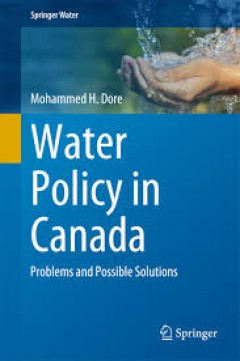
Water Policy in Canada Problems and Possible Solutions
This book deals with the water policy and management in Canada. It discusses various problems and risks in the fresh and drinking water supply in the second largest country in the world. Mohammed Dore argues that water is underpriced and used wastefully in Canada. In selected case studies, he illustrates the major threats from human activity to Canadian freshwaters and drinking water resources,…
- Edition
- -
- ISBN/ISSN
- 978-3-319-15883-9
- Collation
- -
- Series Title
- -
- Call Number
- -
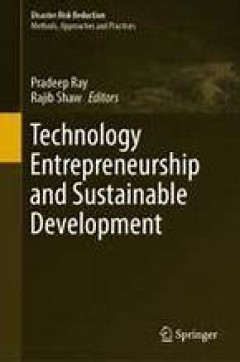
Technology Entrepreneurship and Sustainable Development
This book discusses the need for entrepreneurship for sustainable development from the perspective of Asia, the fastest growing region in the world. The world is now witnessing a spectacular rise of technology entrepreneurship, involving mobile phones, artificial intelligence, geospatial information systems and social media. On the other hand, governments all over the world, particularly those …
- Edition
- 1
- ISBN/ISSN
- 978-981-19-2053-0
- Collation
- Manajemen
- Series Title
- -
- Call Number
- 658
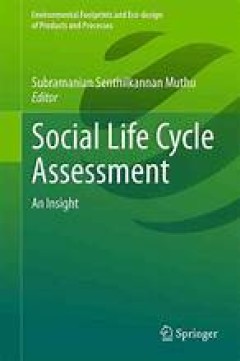
Social Life Cycle Assessment
This book details the primary concepts of Social Life Cycle Assessment (S-LCA), integration of social aspects in product life cycles, quantification of social impacts in S-LCA, impact categorization in S-LCA, methodological aspects of S-LCA, and detailed case studies. As the societal implications of producing a product are coming to take on a new importance, the concept of Social Life Cycle Ass…
- Edition
- 1
- ISBN/ISSN
- 978-981-287-296-8
- Collation
- Manajemen
- Series Title
- -
- Call Number
- 658
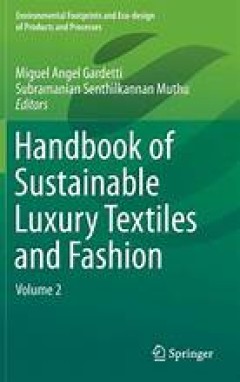
Handbook of Sustainable Luxury Textiles and Fashion
The second volume of handbook explores different dimensions of the sustainable luxury textiles and fashion, broadly based on the following topics: Sustainable luxury Luxury and consumption Luxury, innovation and design potential Luxury and entrepreneurship Sustainable Luxury Management
- Edition
- 1
- ISBN/ISSN
- 978-981-287-742-0
- Collation
- Business Management
- Series Title
- -
- Call Number
- 650
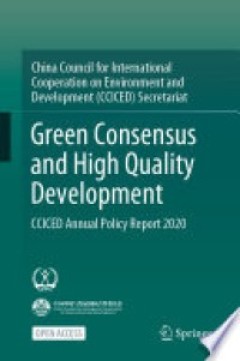
Green consensus and high quality development : cciced annual policy report 2020
This open access book is based on the research outputs of China Council for International Cooperation on Environment and Development (CCICED) in 2020. It covers major topics of Chinese and international attention regarding green development, such as climate, biodiversity, ocean, BRI, urbanization, sustainable production and consumption, technology, finance, value chain, and so on. It also looks…
- Edition
- -
- ISBN/ISSN
- 9789811647994
- Collation
- XXX, 587 p
- Series Title
- -
- Call Number
- 338.951
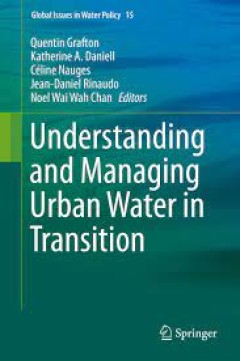
Understanding and Managing Urban Water in Transition
This book examines changes and transitions in the way water is managed in urban environments. This book originated from a joint French-Australian initiative on water and land management held in Montpellier, France. The book delivers practical insights into urban water management. It links scientific insights of researchers with the practical experiences of urban water practitioners to understan…
- Edition
- -
- ISBN/ISSN
- 978-94-017-9801-3
- Collation
- -
- Series Title
- -
- Call Number
- -

Arsenic and Fluoride Contamination: A Pakistan Perspective
This book presents an up-to-the-minute overview of arsenic and fluoride pollution of soil and groundwater in Pakistan. It includes the author’s doctoral dissertation on Lahore as a case study and describes the mechanism of pollution on the basis of the findings in that area. The book highlights the concrete situation in Pakistan – including the severity of the problem, its health effects an…
- Edition
- Ed. 1
- ISBN/ISSN
- 978-81-322-2298-9
- Collation
- XI, 147
- Series Title
- -
- Call Number
- 553.79 FAR a
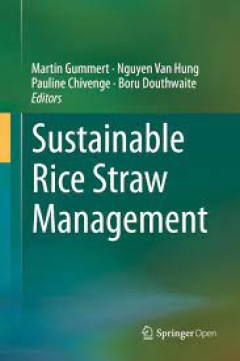
Sustainable Rice Straw Management
This open access book on straw management aims to provide a wide array of options for rice straw management that are potentially more sustainable, environmental, and profitable compared to current practice. The book is authored by expert researchers, engineers and innovators working on a range of straw management options with case studies from Vietnam, the Philippines and Cambodia. The book is …
- Edition
- -
- ISBN/ISSN
- 2020
- Collation
- -
- Series Title
- -
- Call Number
- -
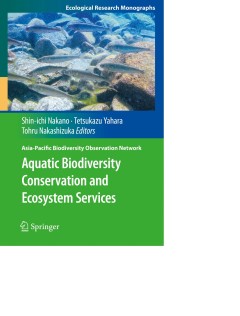
Aquatic Biodiversity Conservation and Ecosystem Services
This volume examines the topic of local biodiversity conservation in the Asia-Pacific region, one of the most rapidly changing areas in the world. With a focus on aquatic systems, this book offers insight on the state of local biodiversity, challenges in management and conservation of biodiversity, and newly developed methods for monitoring biodiversity. In addition, because the service provide…
- Edition
- Ed. 1
- ISBN/ISSN
- 978-981-10-0780-4
- Collation
- XI, 125
- Series Title
- Ecological Research Monographs
- Call Number
- 658.4083 AQU a
 Computer Science, Information & General Works
Computer Science, Information & General Works  Philosophy & Psychology
Philosophy & Psychology  Religion
Religion  Social Sciences
Social Sciences  Language
Language  Pure Science
Pure Science  Applied Sciences
Applied Sciences  Art & Recreation
Art & Recreation  Literature
Literature  History & Geography
History & Geography